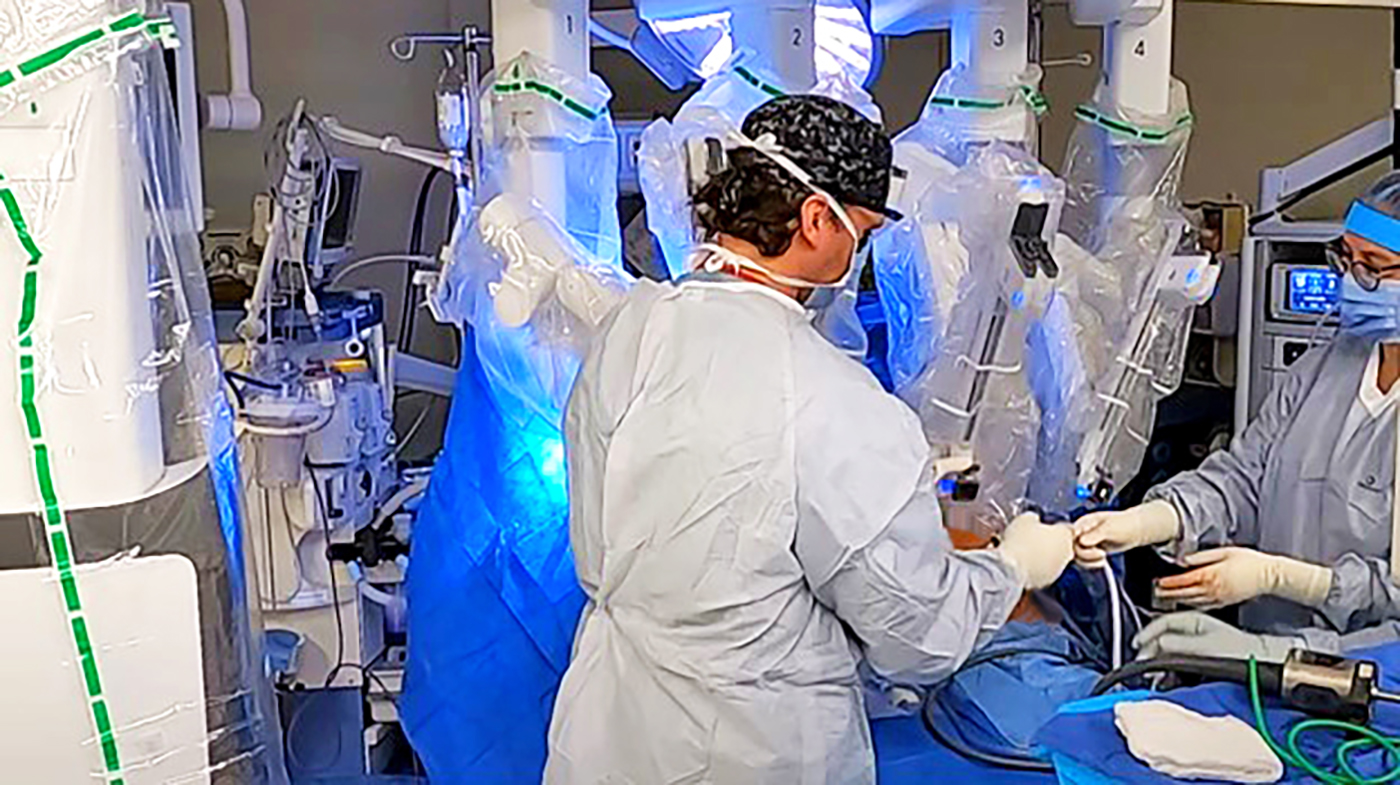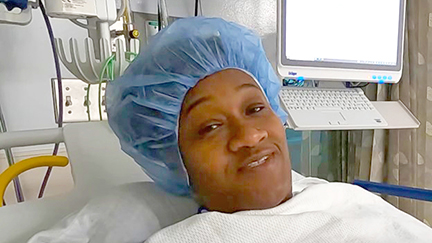New robotic surgery technology at Overton Brooks VA in Shreveport, Louisiana, will ensure better long-term outcomes for Veterans.
Robotic surgery, also called robot-assisted surgery, allows doctors to perform many types of complex procedures with more precision, flexibility and control than is possible with conventional techniques. Over the past 15 years, it has become increasingly popular in the U.S.
“My surgeon had a lot of experience with this technology, so I felt very comfortable,” said Army Veteran Johnie Williams, who had a robot-assisted gall bladder procedure. “I’m all for it. For my fellow Veterans, don’t hesitate, do it.”
Veteran patients have less physical trauma and less pain
“Adding robotics to our vast range of advanced surgical capabilities dramatically expands our ability to perform minimally invasive techniques for our Veterans,” said Chief of Surgery Dr. Ramon Romero. “Robotics allow us to perform complex procedures endoscopically through tiny ports of access, which means our patients have less physical trauma, less blood loss, less pain and a more cosmetically pleasing outcome compared to open surgery.”
While the benefits of robot-assisted surgery are apparent, Shreveport’s leap into the realm of robotic precision care for Veterans did not happen overnight. The surgery staff was very deliberate, conducting extensive planning, research and preparation long before scheduling the first patient.
“I can’t even count the number of planning, safety and engineering meetings before the day of the first surgery. That doesn’t include the time spent in training,” said Romero, who is affiliated with Louisiana State University. “It’s my job to make sure the surgeons and support staff have the appropriate experience and have been granted privileges to perform this advanced surgery.”
“I can and do things which translate to better care for Veterans.”
Seated at the system’s master console a feet away from a patient, the surgeon moves the surgical instruments inside the access ports through ergonomic hand and foot controls. Each of the surgeon’s hand, wrist or finger movements is seamlessly translated by the robotic surgical system into corresponding micro-movements of the surgical instruments which are held steady by the system’s robotic arms. The robotic system provides so-called “intuitive motion” so that in whichever direction the surgeon twists the controls the instruments twist in the same direction.
“I have been a surgeon for more than 10 years, with three of those performing robotic-assisted procedures,” said Dr. Frances Allocco, who is fellowship trained in minimally invasive surgery. “Using surgical robots, I can see and do things through small incisions which translates to better care for Veterans. This is why we are here.”
Overton Brooks VA has affiliations with Louisiana State University School of Medicine in Shreveport, State University Health Science Center and many allied health schools and universities. Serving more than 37,000 Veterans, it provides health care services for Veterans in 15 Louisiana parishes, five counties in southern Arkansas, and 10 counties in east Texas.
Topics in this story
More Stories
Bob Jesse Award celebrates the achievements of a VA employee and a team or department that exemplifies innovative practices within VA.
The Medical Foster Home program offers Veterans an alternative to nursing homes.
Watch the Under Secretary for Health and a panel of experts discuss VA Health Connect tele-emergency care.








You need to let females know that quite often these surgeries involve vaginally inserting instruments to manipulate the uterus and ovaries. Many female veterans have MST and when you don’t tell them, you can trigger suicidal thoughts and tendencies! You need to let them know what, how, and WHO will be doing this as it usually isn’t the surgeon. You need to let them know that they will have bleeding and cramping afterwards. If there was such a surgery, I’m sure you would let male patients know if you planned on taking an appendix out through their penis that they would have pain, bleeding, and possible permanent dysfunction. Start INFORMING females!
Are you letting the patients know that there is an increased risk of adhesions with laparoscopic surgeries because of the air left inside the abdomen? Do you inform them that adhesions can cause permanent pelvic and abdominal pain?
The VA(and doctors in general) need to do a better job of real informed consent.